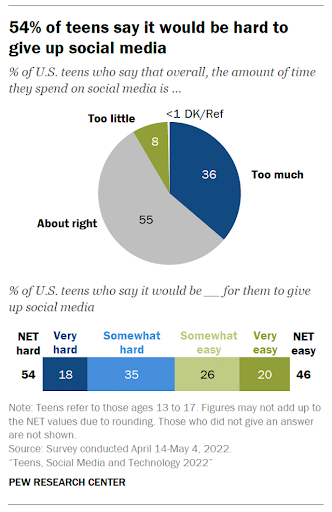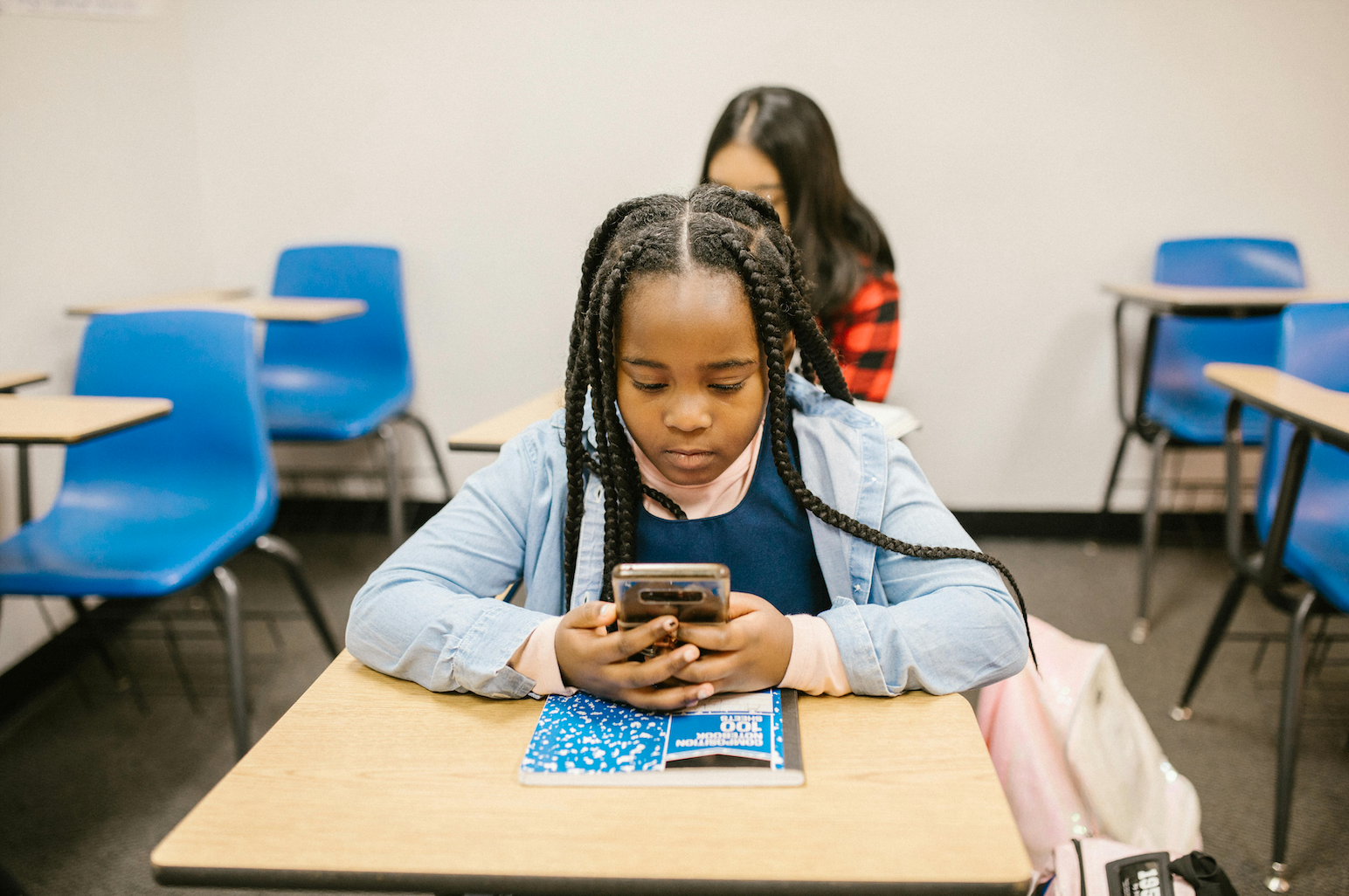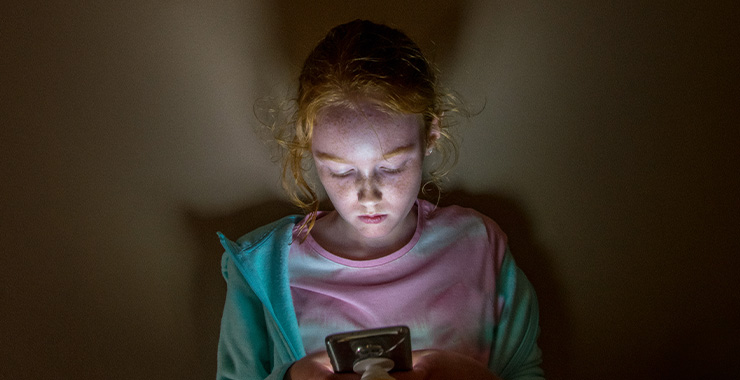9 Reasons Why Social Media Should Be Age-Gated in 2024
Social media has become an omnipresent force in modern society, profoundly shaping the way we communicate, socialize, and perceive the world around us. However, the increasing concerns surrounding its impact on mental health, well-being, and youth development have ignited a crucial debate: should social media be subject to restrictions? We delve into the evidence supporting this argument from recent studies and research findings.
1. Increased Risk for Suicide
Suicide rates among teenagers have shown troubling trends. Over the past 20 years, there has been an 87% increase in suicides among females aged 15-24 and a 30% increase among males in the same age group in the U.S. These statistics underscore the serious implications of mental health deterioration linked to social media usage. This is often the result of multiple factors linked to social media use like cyberbullying, body image issues, and poor sleep quality.
2. Cyberbullying
Cyberbullying has emerged as a prevalent issue in the digital age, with social media platforms providing a platform for harassment and intimidation. Younger users, in particular, may be vulnerable to cyberbullying, which can have serious psychological consequences. Findings from the Pew Research Center highlight the prevalence of cyberbullying among U.S. teens, with a staggering 59% reporting some form of online harassment. Offensive name-calling and targeted attacks via digital platforms contribute to psychological distress and social isolation among young users
3. Mental Health Concerns
Studies in JAMA Pediatrics demonstrate a concerning correlation between prolonged social media use and heightened levels of internalizing behaviors, such as depression and anxiety, particularly among adolescents spending more than 3 hours daily on social platforms. The curated online personas and constant comparison fostered by social media can exacerbate feelings of inadequacy and social isolation.
4. Body Image Issues
A study on social media use and body dissatisfaction from the NIH found, “social media use, and thin- and muscular ideal internalization were positively correlated with body dissatisfaction in both genders. In moderation analyses, thin-ideal internalization emerged as the only variable that had a significant effect on body dissatisfaction in both genders. Additionally, the influence of social media use on body dissatisfaction was moderated by muscular-ideal internalization in boys, whereby for boys with high muscular-ideal internalization, greater social media use was associated with greater body dissatisfaction.” The pervasive presence of idealized body images on social media can negatively impact body image perception, particularly among adolescents. Exposure to unrealistic beauty standards can contribute to body dissatisfaction and eating disorders.
5. Increased Screen Time
One of the primary concerns associated with social media use among younger individuals is the significant increase in screen time. Excessive screen exposure has been linked to various health issues, including eye strain, obesity, and disrupted sleep patterns. The American Academy of Child and Adolescent Psychiatry revealed alarming trends in screen time among children and teenagers in the United States. “On average, children ages 8-12 in the United States spend 4-6 hours a day watching or using screens, and teens spend up to 9 hours.” Excessive screen exposure has also been linked to various health risks, including sleep disturbances and sedentary behavior.
6. Impact on Sleep Quality
There are negative effects of social media on sleep patterns among adolescents. Increased social media use is associated with poorer sleep quality, characterized by difficulty falling asleep and shortened sleep duration. In a recent study on social media and sleep disturbance in adolescents, “in boys, the amount of social media use was significantly more than girls and poor sleep quality had a [statistically] significant relationship with social media use. Additionally, there was a reverse correlation between the average use of electronic devices and sleep duration, and a direct correlation between the average use in social media and depression.” Disruption in sleep patterns is known to have detrimental effects on cognitive function and overall well-being.
7. Impact on Academic Performance
Excessive social media use has been linked to decreased academic performance and lower attention spans among students. In a study by University of Delaware professor, Mellissa Gordon, on social media and academic performance in ages 11 to 15, “[r]esults were such that, as [the] frequency of use on each platform: Facebook, Twitter, Instagram, and Snapchat increased, academic achievement decreased.” Constant notifications and distractions can impede concentration and learning. Higher levels of social media usage are associated with lower GPAs, attributed to increased distraction and decreased productivity during study sessions.
8. Online Predators
Social media platforms can serve as hunting grounds for online predators seeking to exploit vulnerable young users. Age restrictions could help limit exposure to potential dangers and enhance online safety measures. Reports from the National Center for Missing and Exploited Children (NCMEC) underscore the escalating risks posed by online predators. The proliferation of social media platforms provides opportunistic avenues for predators to target vulnerable children, leading to increased reports of online enticement for sexual acts.
9. Distraction and Addiction
The addictive nature of social media, characterized by endless scrolling and constant notifications, can lead to decreased productivity, increased procrastination, and difficulties in managing time effectively. The Pew Research Center highlights the pervasive role of social media as a distraction among teens, with 71% admitting to using social platforms while studying or doing homework and over half of all teens admitting it would be “hard” to give up social media.
 Conclusion
Conclusion
In light of these compelling findings, calls for regulating social media usage and content moderation are gaining momentum. While acknowledging the benefits of digital connectivity, it is imperative to implement responsible measures that safeguard users, particularly children and adolescents, from the adverse effects of unregulated social media exposure. Addressing these concerns requires collaborative efforts among policymakers, educators, technology companies, and caregivers to strike a balance between digital access and societal well-being. By prioritizing user safety, mental health awareness, and responsible online practices, we can harness the transformative potential of social media while mitigating its associated risks.
Watch this YouTube video on the effects of screen time addiction: Screenagers











